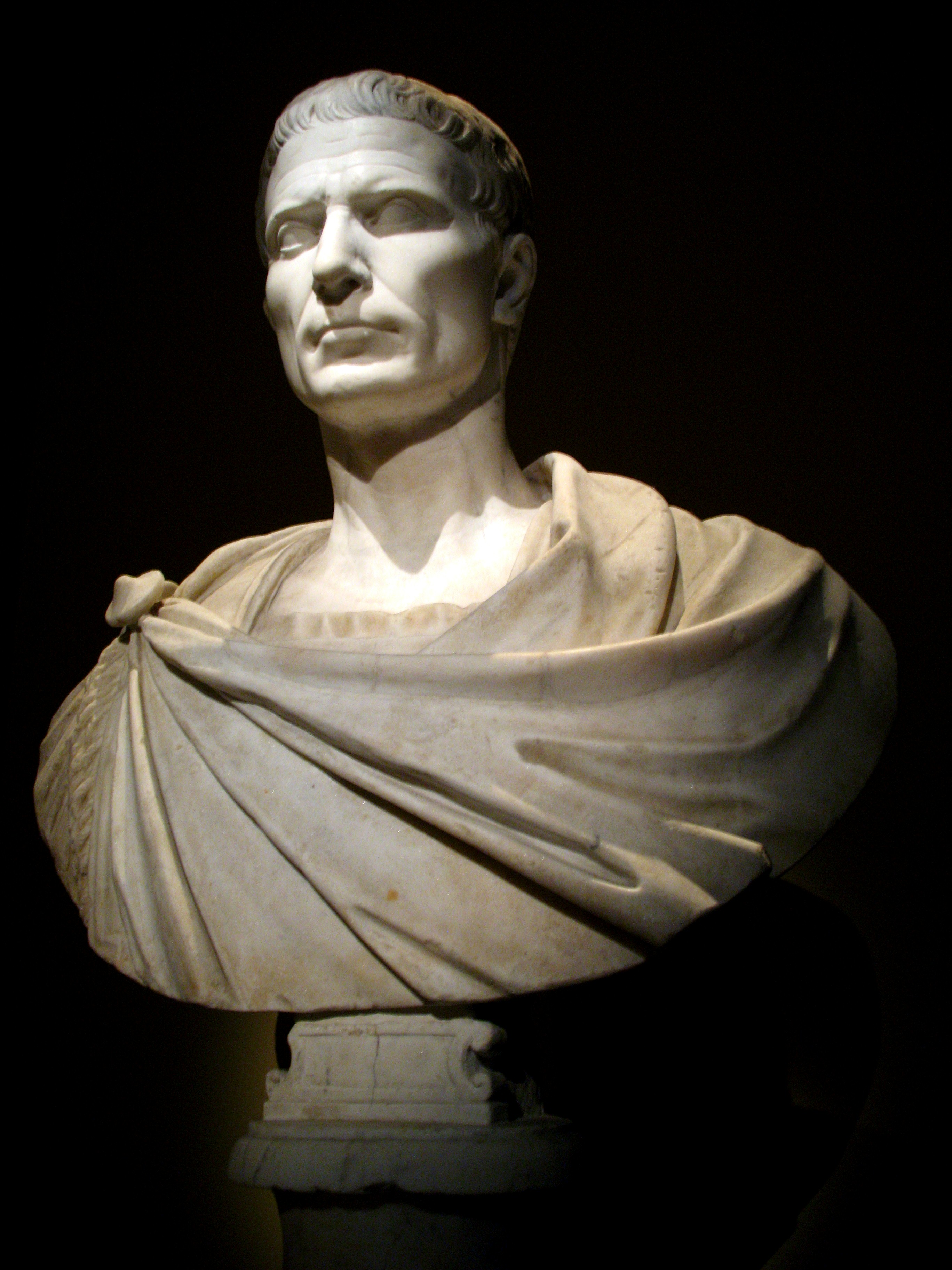 | ||
| Mort de Cesar, 1798 - Vincenzo Camuccini |
March 15 has come down through the annals of history as the Ides of March. Because it is on this day, in 44 B.C., that Julius Caesar met his death by being stabbed 23 times in the Roman Senate by a group of conspirators including, Marcus Junius Brutus and Gaius Cassius Longinus, along with a group of 60 co-conspirators.Mark Antony had only vaguely learned of the assassination plot the night before from a terrified Liberator and fearing the worse, went to head off Caesar. Fearing that Antony would get to Caesar and warn him of the plot, the assassins sent one of their own, Trebonius ( according to Plutarch it was Brutus Albinus) , to intercept Anthony as he was making his way to the portico of the Theater of Pompey, where the Roman Senate was to meet.
According to Greek historian, essayist, biographer and Middle Platonist, Plutarch as Caesar arrived at the Senate he was presented with a petition by Roman senator Tillius Cimber, to recall his exiled brother. The co-conspirators crowded around in support of Tillius Cimber. Both Plutarch and Roman historian, Suetonius, say that Caeser waved him away but that Cimber grabbed at Caesar and pulled down Caesar's tunic. Caesar then cried to him "Ista quidem vis est" (" Why, this is violence") . At the same time, Servillus Casca produced his dagger and made a glancing thrust at the neck of Caesar. But Caesar quickly turned around and caught Casca's arm. According to Plutarch, Caesar said to "Casca, furcifer quae agis" ("Casca, you villain, what are you doing?") Casca, scared, shouted in Greek " Help, brother!" Within moments, the entire group, including Brutus, was striking out at Caesar. Caesar made an attempt to get away from his murders, but he tripped and fell down the steps because he was blinded by his blood that was being spilled. As he laid defenseless at the bottom steps of the portico, his murders swooped down upon Caesar and continued to stab him to death. According to the ancient Roman historian, Eutropius, around 60 or more men took part in the murder of Julius Caesar. He was stabbed 23 times. According to the historian Suetonius, a physician determined that Caesar died from only one wound, the second one into his chest. Caesar's body laid on the Senate floor for three hours before other officials came and removed it.
Casear's last words are not known to be certain and have been a point of discussion for historians and scholars alike. Suetonius has reported that others have said Caesar's final words to be the Greek phrase "Kai su, teknon?" : "You too, my child?" in English or "Tu quoque, Brute, fili mi" in Latin. Caesar speaking Greek would not have appeared strange, for he is known to have spoken the language excellently. However, Suetonius says that Caesar did not speak. Plutarch also states that Caesar said nothing, he just merely pulled his toga over is head when he saw Brutus among the murderers. According to Plutarch, after the assassination, Brutus stepped forward as if to say something to his fellow senators, but they had already fled the portico. Brutus and his companions then marched to the Capitol while hollering out to their beloved city: "People of Rome, we are once again free!" They were met with deafening silence, for the Roman citizens had heard the rumor of Caesar's demise ad had locked themselves in their houses.
Caesar's body was cremated and on his cremation site the Temple of Caesar was built a few years later ( at the east side of the main square of the Roman Forum). Now, only its alter remains. A life-size wax figure of Julius Caesar was later erected in the forum displaying the 23 stab wounds. A crowd that had gathered at the statue started a fire that spread that damaged the forum and neighboring buildings. In the chaos that followed, Mark Antony, Octavian ( later Augustus Caesar) and others fought a series of five civil wars, which would lead to the end of the Roman Empire.
 |
| Roman Empire - 44 B.C. |


No comments:
Post a Comment